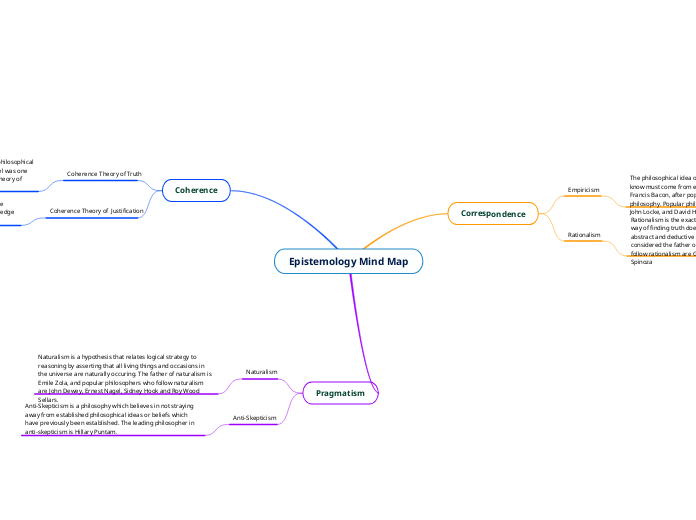
Empiricism
The philosophical idea of epistemology that all truths that you know must come from experience. The father of empiricism is Francis Bacon, after popularizing the scientific method in philosophy. Popular philosophers who follow empiricism are John Locke, and David Hume.
Rationalism
Rationalism is the exact opposite of empiricism, in which your way of finding truth does not follow past experiences, but abstract and deductive reasoning. Rene Descartes is considered the father of rationalism. Popular philosophers who follow rationalism are Gottfried Wilhelm Leibniz and Baruch Spinoza
Coherence Theory of Truth
The coherence theory of truth is the idea that any philosophical idea must follow a chosen set of propositions. Hegel was one of the most adamant defenders of the coherence theory of truth over the correspondence theory of truth.
Coherence Theory of Justification
The Coherence Theory of Justification is the idea that if the philosophical concept is justified, that qualifies it as knowledge rather than an opinion.
Naturalism
Naturalism is a hypothesis that relates logical strategy to reasoning by asserting that all living things and occasions in the universe are naturally occuring. The father of naturalism is Emile Zola, and popular philosophers who follow naturalism are John Dewey, Ernest Nagel, Sidney Hook and Roy Wood Sellars.
Anti-Skepticism
Anti-Skepticism is a philosophy which believes in not straying away from established philosophical ideas or beliefs which have previously been established. The leading philosopher in anti-skepticism is Hillary Puntam.